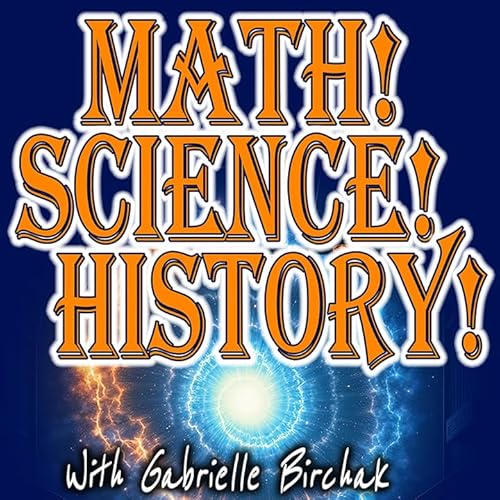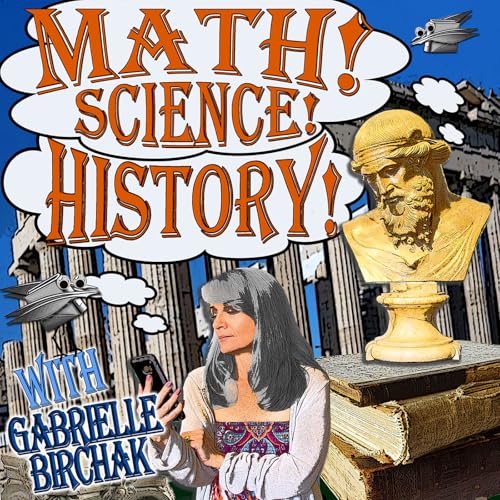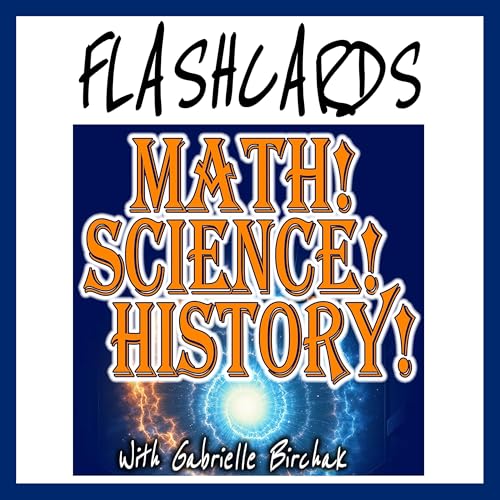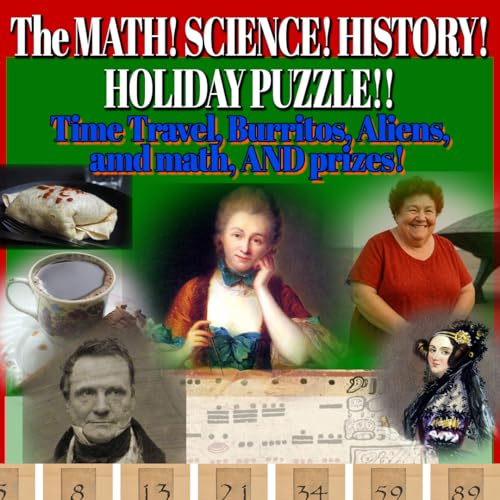This episode marks the very first Math! Science! History! holiday puzzle, a tradition built around logic, problem-solving, and a little historical mischief. Rather than a standard narrative episode, this one invites listeners to actively participate, following clues, working through puzzles, and engaging with science and history in a hands-on way.
Designed as a holiday "party for the brain," the episode blends reasoning, curiosity, and playful challenge. You can listen straight through or pause along the way to work out the puzzles yourself. There's no rush, no trick answers, and no prior episodes required.
How to listen:
· Grab a notebook or open a notes app.
· Pause when you need time to think.
· Enjoy the process more than the finish line.
This archive re-release is part of our seasonal tradition of resurfacing listener-favorite puzzles for new audiences and longtime listeners alike.
🔗 Explore more on our website: mathsciencehistory.com
📚 To buy my book Hypatia: The Sum of Her Life on Amazon, visit https://a.co/d/g3OuP9h
🌍 Let's Connect!
Bluesky: https://bsky.app/profile/mathsciencehistory.bsky.social
Instagram: https://www.instagram.com/math.science.history
Facebook: https://www.facebook.com/mathsciencehistory
LinkedIn: https://www.linkedin.com/company/math-science-history/
Threads: https://www.threads.com/@math.science.history
Mastodon: https://mathsciencehistory@mathstodon.xyz
YouTube: Math! Science! History! - YouTube
Pinterest: https://www.pinterest.com/mathsciencehistory
🎧 Enjoying the Podcast?
☕ Support the Show: Coffee!! PayPal
Leave a review! It helps more people discover the show!
Share this episode with friends & fellow history buffs!
Subscribe on your favorite podcast platform
Check out our merch: https://www.mathsciencehistory.com/the-store
Music: All music is public domain and has no Copyright and no rights reserved.
Selections from The Little Prince by Lloyd Rodgers
Until next time, carpe diem!
 Jan 13 202613 min
Jan 13 202613 min Jan 6 202638 min
Jan 6 202638 min Dec 30 202515 min
Dec 30 202515 min Dec 23 202511 min
Dec 23 202511 min Dec 19 202516 min
Dec 19 202516 min Dec 16 202521 min
Dec 16 202521 min Dec 12 202512 min
Dec 12 202512 min 51 min
51 min
